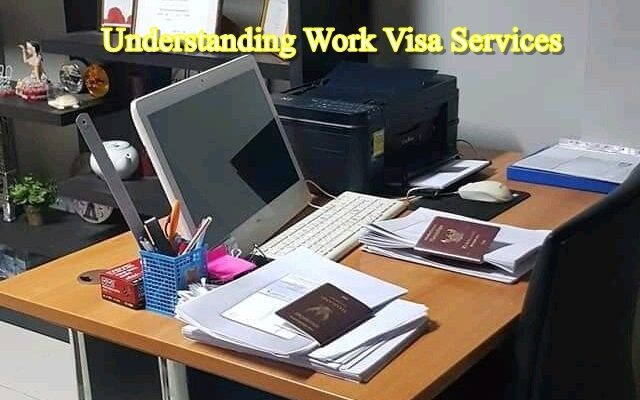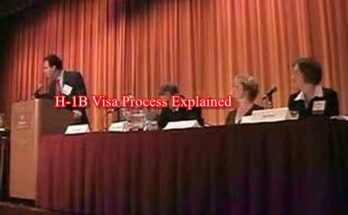Understanding Work Visa Services
Navigating the world of work visas can be complex, especially for those new to the topic. Whether you’re an international student looking to work in a new country, an employer seeking to hire foreign talent, or simply someone interested in understanding the process, this guide will provide a thorough overview of work visa services, Understanding Work Visa Services
Introduction to Work Visas
A work visa, also known as an employment visa, is an official document that allows a foreign national to work legally in a country other than their own. Each country has its own set of rules and visa categories designed to address labor shortages, fill skill gaps, and promote economic growth.
Purpose of Work Visas
Work visas serve several key purposes, Understanding Work Visa Services
Filling Skill Gaps: They allow countries to bring in skilled workers to fill job vacancies that cannot be filled by local talent.
Economic Growth: By attracting skilled professionals, countries can drive innovation and boost economic performance.
Cultural Exchange: They enable cross-cultural interactions and global collaboration in various fields.
Types of Work Visas
Different countries offer various types of work visas based on the nature of employment, duration of stay, and the applicant’s qualifications. Here’s a general overview:
Temporary Work Visas: These are short-term visas typically valid for a specific duration, often tied to a particular job or employer.
Permanent Work Visas: These visas provide a pathway to permanent residency and, eventually, citizenship.
Seasonal Work Visas: Designed for temporary, seasonal jobs such as agricultural work or tourism-related positions.
2. Understanding Work Visa Categories
In the United States, there are several categories of work visas, each tailored to different types of employment and qualifications, Understanding Work Visa Services
H-1B Visa: For specialty occupations that require a bachelor’s degree or higher. Common in fields like technology and engineering.
L-1 Visa: For intra-company transferees who work in managerial positions or have specialized knowledge.
O-1 Visa: For individuals with extraordinary ability or achievement in their field.
E-2 Visa: For investors and employees of investment companies who have a substantial investment in a U.S. business.
TN Visa: For professionals from Canada and Mexico under the North American Free Trade Agreement (NAFTA).
Canadian Work Visas
Canada offers a variety of work visas, including, Understanding Work Visa Services.
Temporary Foreign Worker Program (TFWP): Allows employers to hire foreign workers for temporary positions.
International Mobility Program (IMP): Facilitates the hiring of foreign workers who bring significant economic, cultural, or other benefits to Canada.
Post-Graduation Work Permit (PGWP): For international students who have completed a study program in Canada and wish to work there.
UK Work Visas
In the UK, work visas include, Understanding Work Visa Services
Tier 2 (General) Visa: For skilled workers with a job offer from a licensed employer.
Tier 5 (Temporary Worker) Visa: For those coming to the UK for temporary work, including charity work and creative industries.
Skilled Worker Visa: Replaced the Tier 2 visa, allowing skilled workers to live and work in the UK with an approved employer.
3. The Work Visa Application Process
Before applying for a work visa, you need to determine if you meet the eligibility criteria. This typically involves, Understanding Work Visa Services
Job Offer: Most work visas require a formal job offer from a company in the host country.
Qualifications: Ensure you have the necessary qualifications and experience for the role.
Sponsorship: In many cases, your employer must sponsor your visa application.
Gathering Required Documents
Each visa category requires specific documents. Commonly required documents include, Understanding Work Visa Services
Passport: Valid for the duration of your stay.
Job Offer Letter: A formal offer from an employer in the host country.
Educational Qualifications: Diplomas, certificates, and transcripts.
Proof of Experience: Employment letters or references from previous employers.
Visa Application Form: Completed and signed application forms specific to the visa type.
Photographs: Recent passport-sized photographs.
Completing the Application
Application Form: Fill out the visa application form accurately. Some countries allow online applications, while others require paper forms.
Visa Fees: Pay the required visa application fee. Fees vary depending on the visa type and country of application.
Submit Documents: Submit your completed application form and supporting documents either online or by mail, as instructed by the visa authority.
Attending an Interview
Some work visa applications require an interview as part of the process. This interview may be conducted at a consulate or embassy and can include:
Verification of Documents: Confirming the authenticity of your documents.
Questions About Employment: Answering questions related to your job offer, qualifications, and work experience.
Security Checks: Background checks and security screenings.
Waiting for a Decision
After submitting your application, the processing time can vary based on the visa type, country, and individual circumstances. During this period:
Track Your Application: Use any tracking tools provided by the visa authority to monitor the status of your application.
Respond to Requests: If additional information or documentation is requested, provide it promptly.
Receiving Your Visa
If approved, you will receive your work visa. This may be, Understanding Work Visa Services
Sticker or Stamp: Affixed to your passport, indicating that you are authorized to work in the host country.
Electronic Visa: An electronic record that you may need to present upon arrival.
Working on a Visa
Work visas come with specific conditions, including, Understanding Work Visa Services.
Employment Restrictions: You may only work for the employer who sponsored your visa.
Duration of Stay: Your visa is valid for a specific period, after which you may need to apply for an extension or renewal.
Compliance: Adhering to the terms and conditions of your visa is crucial to avoid legal issues or deportation.
Renewing or Extending Your Visa
Renewal Process: If you wish to continue working beyond the visa’s validity, you may need to apply for an extension. This often involves reapplying or submitting a renewal application with updated documents.
Changing Employers: If you want to change jobs, you may need to apply for a new visa or update your current visa status, depending on the visa type and country.
Permanent Residency and Citizenship
Pathways to Permanent Residency: Some work visas offer a pathway to permanent residency if certain conditions are met, such as maintaining continuous employment and meeting residency requirements.
Citizenship: Once you achieve permanent residency, you may be eligible to apply for citizenship, depending on the country’s laws and requirements.
Challenges and Solutions
Visa Denials: Applications can be denied due to missing documents, errors in the application, or failure to meet eligibility criteria.
Complex Requirements: The visa process can be complex, with varying requirements based on the visa type and country.
Solutions and Tips
Prepare Thoroughly: Ensure all documents are complete and accurate before submission.
Seek Professional Help: Consulting with immigration attorneys or visa consultants can help navigate complex applications.
Stay Informed: Regularly check for updates on visa policies and requirements from official sources.
6. Resources and Support
U.S. Citizenship and Immigration Services (USCIS): Provides detailed information on U.S. work visas.
Immigration, Refugees and Citizenship Canada (IRCC): Offers resources on Canadian work visas.
UK Visas and Immigration (UKVI): Information on work visas for the UK.
Professional Assistance
Immigration Lawyers: Specialize in helping with visa applications, extensions, and legal issues.
Visa Consultants: Offer guidance on the application process and help with documentation.
Community Resources
Local Community Organizations: Many communities have resources and support for immigrants and foreign workers.
Online Forums and Groups: Can provide peer support and share experiences related to work visas.
Conclusion
Understanding work visa services is essential for navigating the complexities of working abroad, whether you’re an international professional, a student seeking work opportunities, or an employer looking to hire foreign talent. By familiarizing yourself with the types of work visas, the application process, and common challenges, you can better prepare for a successful visa application and work experience.
This comprehensive guide is designed to provide a clear and detailed overview for beginners, helping you to make informed decisions and navigate the work visa process with confidence.




